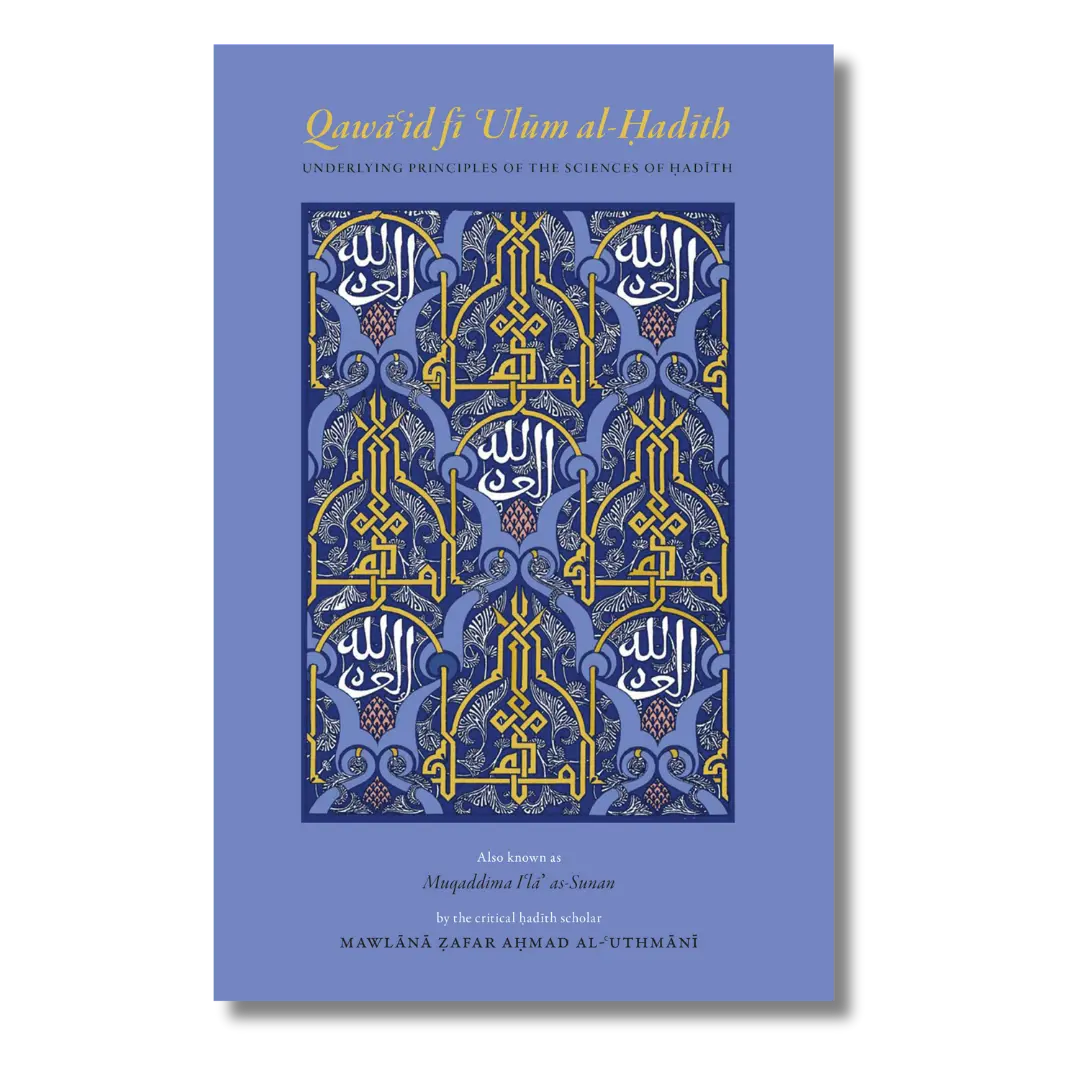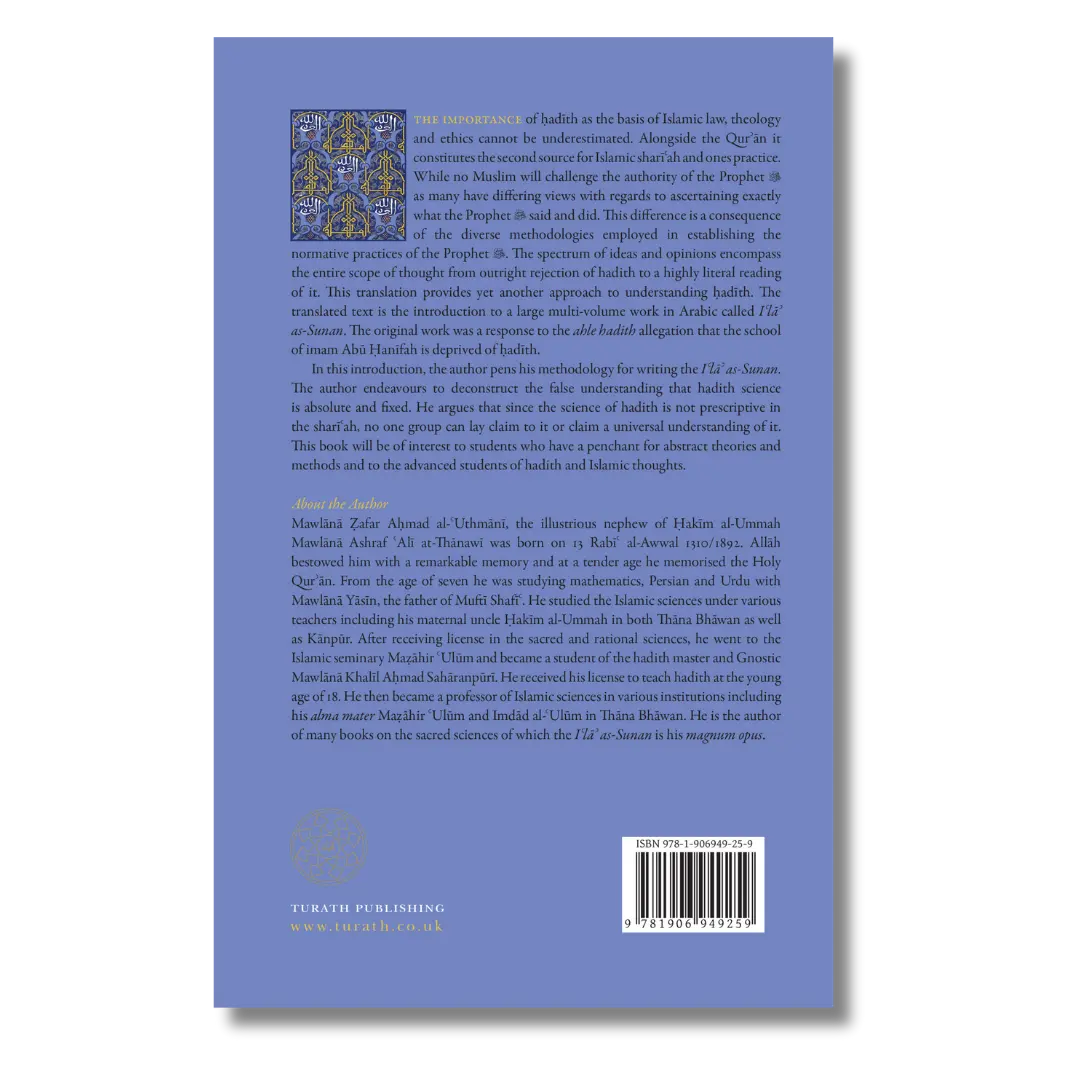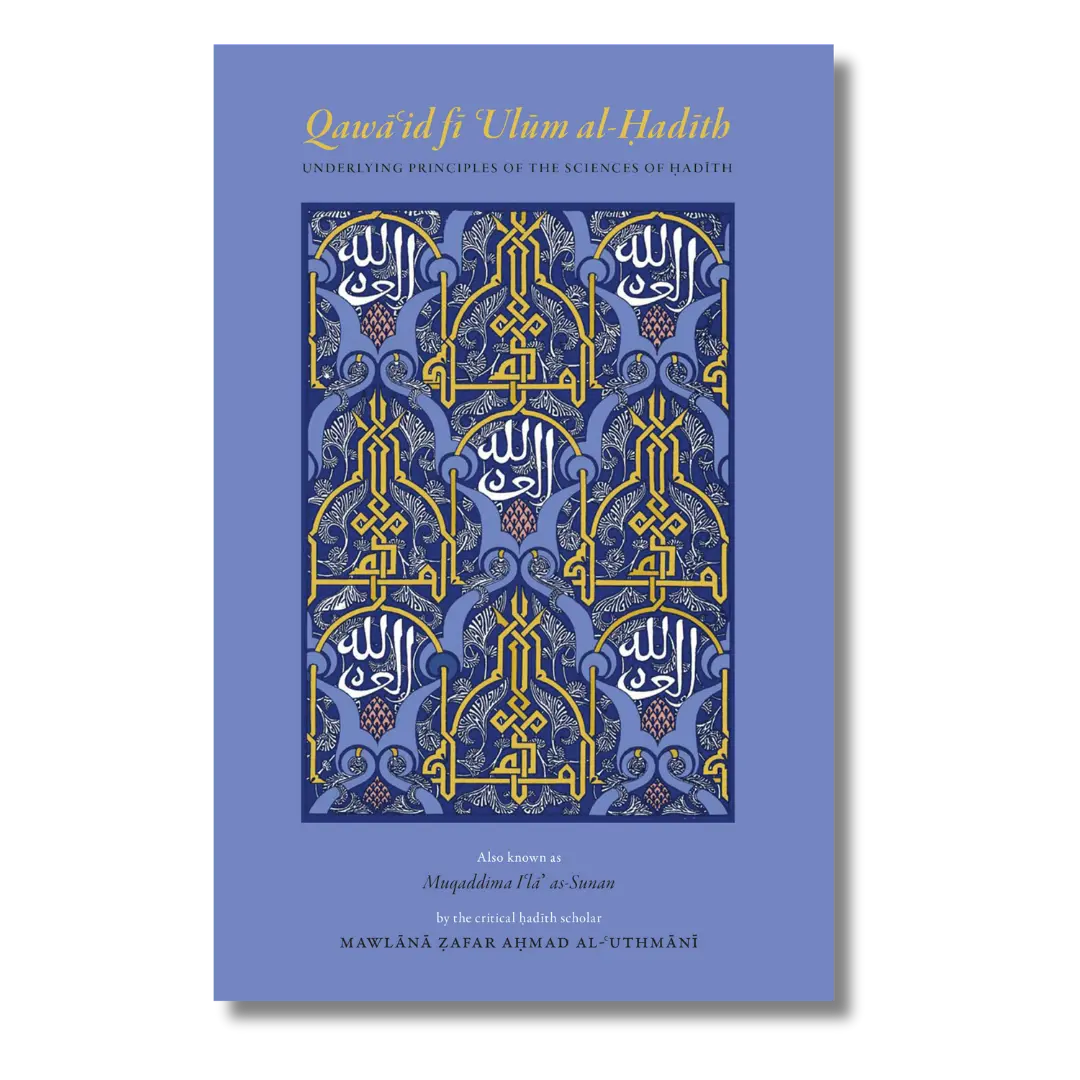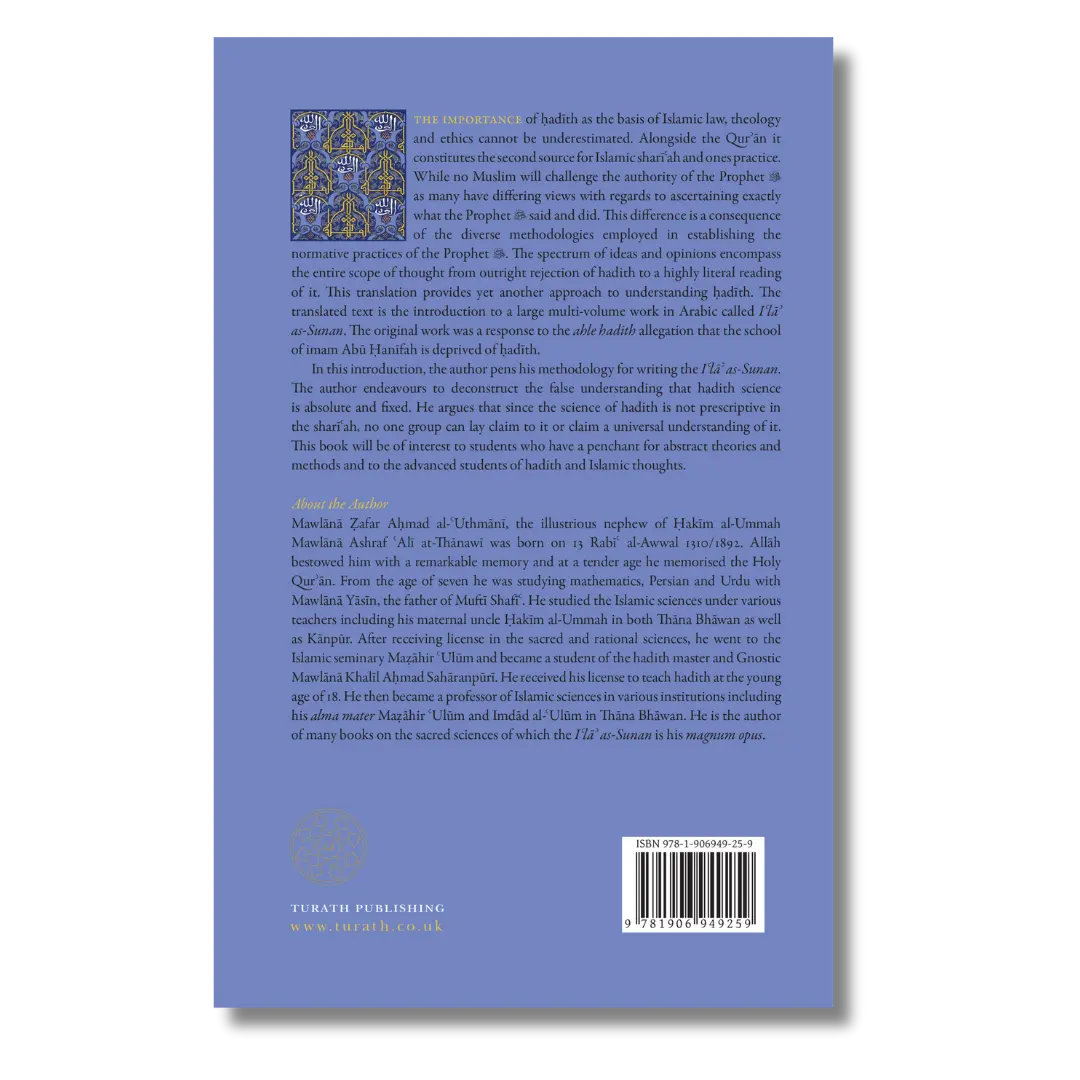

Detailed Description
The importance of hadith as the basis of Islamic law, theology and ethics cannot be underestimated. Alongside the Quran it constitutes the second source for Islamic shariah and ones practice. While no Muslim will challenge the authority of the Prophet (may Allah bless him and grant him peace) as many have differing views with regards to ascertaining exactly what the Prophet (may Allah bless him and grant him peace) said and did. This difference is a consequence of the diverse methodologies employed in establishing the normative practices of the Prophet (may Allah bless him and grant him peace). The spectrum of ideas and opinions encompass the entire scope of thought from outright rejection of hadith to a highly literal reading of it. This translation provides yet another approach to understanding hadith. The translated text is the introduction to a large multi-volume work in Arabic called I'la as-Sunan. The original work was a response to the ahle hadith allegation that the school of Imam Abu Hanifah is deprived of hadith. In this introduction, the author pens his methodology for writing the I'la as-Sunan. The author endeavours to deconstruct the false understanding that hadith science is absolute and fixed. He argues that since the science of hadith is not prescriptive in the shariah, no one group can lay claim to it or claim a universal understanding of it. This book will be of interest to students who have a penchant for abstract theories and methods and to the advanced students of hadith and Islamic thoughts. About the Author Mawlana Zafar Ahmad al-Uthmani, the illustrious nephew of Hakim al-Ummah Mawlana Ashraf Ali at-Thanawi was born on 13 Rabi al-Awwal 1310/1892. Allah bestowed him with a remarkable memory and at a tender age he memorised the Holy Quran. From the age of seven he was studying mathematics, Persian and Urdu with Mawlana Yasin, the father of Mufti Shafi. He studied the Islamic sciences under various teachers including his maternal uncle Hakim al-Ummah in both Thana Bhawan as well as Kanpur. After receiving license in the sacred and rational sciences, he went to the Islamic seminary Mazahir Ulum and became a student of the hadith master and Gnostic Mawlana Khalil Ahmad Saharanpuri. He received his license to teach hadith at the young age of 18. He then became a professor of Islamic sciences in various institutions including his alma mater Mazahir Ulum and Imdad al-Ulum in Thana Bhawan. He is the author of many books on the sacred sciences of which the I'la as-Sunan is his magnum opus.





